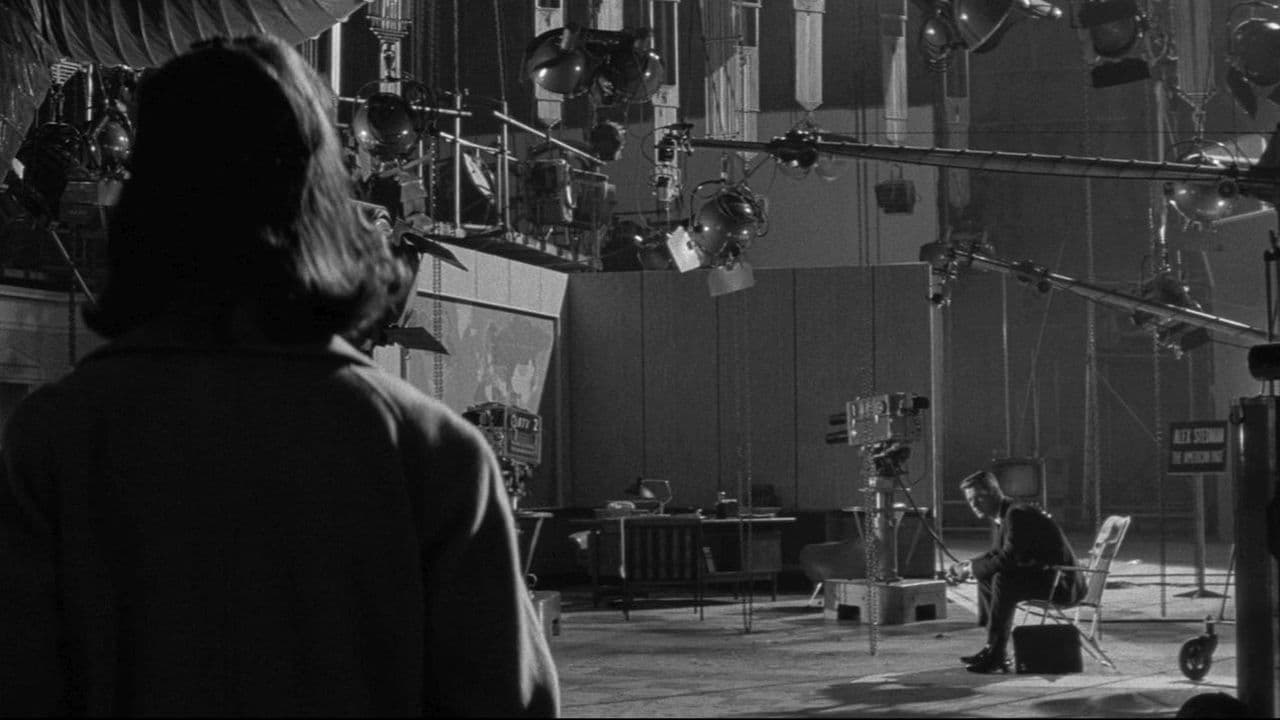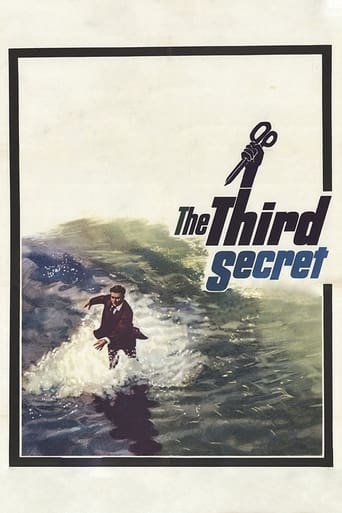

I enjoyed this a lot. It is a bit dialogue heavy but as long as the dialogue is as good as this is, for most of the time, I have no problem with that and there is sufficient and most effective visual bravura where needed. Very English, it has to be said, and I suppose very much of the cinema of the early 60s. Judi Dench has a small part and would have a much larger part the following year, in 'Four in the Morning' set, funnily enough along pretty much the same stretch of the Thames, at Strand-on-the-Green, between Kew Bridge and Chiswick. The credits appear over a shot of the Thames at Richmond but this would be poetic license rather than a mistake. Stephen Boyd is the main male lead and he does a difficult job well as we ponder the death of an eminent psychiatrist when his daughter insists that her father would not have killed himself. Pamela Franklin plays the fourteen year old who begins to make Boyd even consider he might have killed the doctor before the film races to a rousing conclusion. She plays her role most effectively and will be remembered as the young girl from the earlier, The Innocents. Quiet, considered, intelligent film making, little seen today. Great b/w cinematography.
... View MoreThis is a far from perfect film and I am glad I stuck with it, as up until late in the movie I felt a little bored. That's because the film moves very slowly and is way too talky. So, bear with the glacial pace and you'll most likely enjoy the film overall.A psychiatrist is found dying by his housekeeper. He's babbling incoherently and based on what he says and the type of gunshot he's received, the police rule his death a suicide. However, his young daughter (Pamela Franklin) insists that he was murdered and enlists Stephen Boyd to help her investigate--though this aspect of the film was very hard to believe. Through the course of the film, Boyd tracks down the doctor's patients until he ultimately discovers the perpetrator in a nice twist. While the psychiatric aspects of the film are a bit dubious and, as I said before, it's SLOW, the film ultimately is interesting if flawed. Worth seeing but certainly NOT a film to rush to see.A few notes. First, I noticed someone saying that Boyd was well-cast. This is true if her were playing an Irishman who is trying (in vain) to put on an American accent! The fact is to most Americans watching, they can spot his accent as a phony. Also, speaking of voices, it's sad to hear Jack Hawkins in the film as his voice is very gruff compared to his earlier films. That is because he was suffering from throat cancer. It would soon be diagnosed and his larynx would be removed. In an interesting twist, he was so appreciated as an actor (and as a person) that he continued acting and his voice was dubbed in all these post-surgery films. Hawkins voice Boyd
... View MoreI was the edge of my seat! A suspenseful Who Done It with compelling performances by Pamela Franklin and Stephen Boyd in challengingly complex roles. The plot is fairly progressive for its time - the topic of mental illness still somewhat taboo in our society. I read somewhere that Stephen Boyd was so taken with the story and the character, he took a sizeable pay cut to play the role of Alex. Versatile actor that he was, he seemed to most enjoy those demanding and unusual character roles with substance and depth that really challenge an actor and in which he performed so notably well. And Pamela Franklin, at the age of 14, is an incredible actress taking on a role that veterans would not have managed nearly as well.Great story - great film - great acting!
... View MoreAlthough it has been quite awhile since I've watched this movie, I do recommend it. I thought the suspense was well done. I also thought the storyline was pretty good for 1964 and it would be interesting to see a WELL DONE, modern remake.
... View More